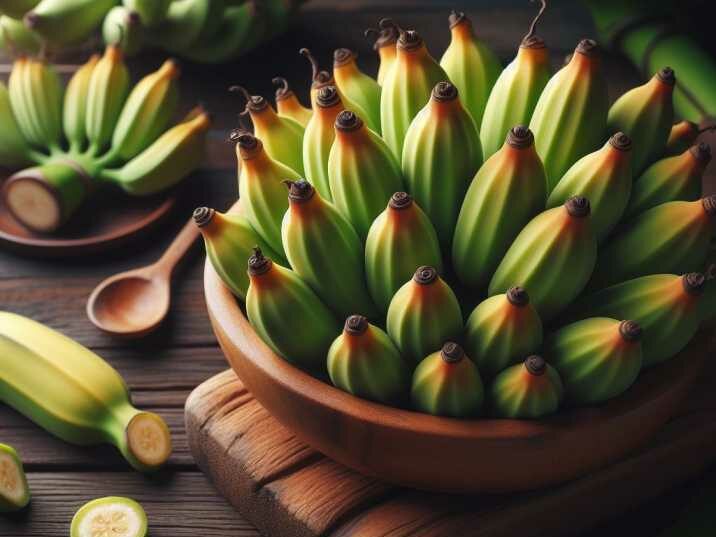Impact of Baby Bananas on Local Farmers Livelihoods
Table of Contents
Introduction:
Welcome to our beginner’s guide where we delve into the fascinating world of baby bananas and their significant impact on local farmers’ livelihoods. In this journey, we’ll explore how these diminutive fruits, though small in size, carry immense importance in supporting agricultural communities. From their cultivation to consumption, let’s uncover the sweet support these bananas provide to farmers and their families.
- The Birth of Baby Bananas: Let’s start at the beginning – the birth of baby bananas. These miniature marvels are not a different species but rather the immature fruits of various banana cultivars. While their larger counterparts, like the Cavendish banana, hog the spotlight in grocery stores worldwide, baby bananas offer a unique charm with their petite size and distinct flavor.
- Cultivation and Harvesting: Behind every bunch of baby bananas lies the dedication of local farmers who nurture these delicate fruits from seed to harvest. Cultivation typically takes place in tropical regions with suitable climates for banana growth. Farmers carefully tend to their banana plants, providing optimal conditions for growth, including ample sunlight, water, and nutrients.

Harvesting baby bananas requires precision and care to ensure optimal ripeness and quality. Unlike traditional bananas, which are harvested when fully mature, baby bananas are picked at an earlier stage to preserve their small size and unique flavor profile.
- Supporting Local Economies: The journey of baby bananas from farm to table plays a vital role in supporting local economies and farmers’ livelihoods. By choosing to purchase baby bananas sourced from local farmers, consumers directly contribute to the economic sustainability of agricultural communities.
Local farmers rely on the sale of baby bananas as a significant source of income, enabling them to support their families, invest in their farms, and contribute to the overall economic development of their communities. Through conscious consumer choices, individuals can make a meaningful impact on the lives of these farmers.
- Environmental Sustainability: In addition to supporting local economies, baby bananas also contribute to environmental sustainability in various ways. Banana plants are known for their resilience and ability to thrive in diverse ecosystems, making them a sustainable crop choice for farmers.
Furthermore, the cultivation of baby bananas often involves traditional farming practices that prioritize soil health and biodiversity. Many local farmers employ organic farming methods, avoiding the use of synthetic pesticides and fertilizers, which can have harmful effects on the environment.
- Nutritional Benefits and Culinary Versatility: Beyond their economic and environmental contributions, baby bananas offer a host of nutritional benefits and culinary versatility. Despite their small size, these fruits pack a nutritious punch, containing essential vitamins and minerals like potassium, vitamin C, and vitamin B6.
In the kitchen, baby bananas shine in a variety of culinary applications. Whether eaten fresh as a convenient snack, blended into smoothies for added sweetness, or incorporated into baked goods for natural flavor enhancement, these versatile fruits add a delightful touch to any dish.

Conclusion:
Embracing the Sweet Support of Baby Bananas In conclusion, the journey of baby bananas from farm to table embodies a beautiful symbiosis between consumers and local farmers. By supporting the cultivation and sale of these petite fruits, individuals contribute to the economic prosperity of farming communities while embracing sustainable agricultural practices.
Next time you reach for a bunch of baby bananas at your local market, remember the invaluable support you’re providing to local farmers and their families. Together, let’s continue to savor the sweetness of these small but mighty fruits while nurturing the livelihoods of those who cultivate them.
FAQs (Frequently Asked Questions):
- What is the difference between baby bananas and regular bananas?
- Baby bananas, also known as finger bananas or mini bananas, are smaller in size compared to regular bananas like the Cavendish variety. They have a sweeter flavor and a thinner skin.
- How do baby bananas support local farmers’ livelihoods?
- Baby bananas play a significant role in supporting local farmers by providing them with a valuable source of income. The cultivation and sale of these fruits contribute to the economic sustainability of farming communities, allowing farmers to support their families and invest in their farms.
- Are baby bananas environmentally sustainable?
- Yes, baby bananas contribute to environmental sustainability in several ways. Banana plants are resilient and thrive in diverse ecosystems, making them a sustainable crop choice for farmers. Additionally, many local farmers employ organic farming practices, avoiding synthetic pesticides and fertilizers that can harm the environment.
- How can consumers support local farmers who grow baby bananas?
- Consumers can support local farmers by choosing to purchase baby bananas sourced from local markets or directly from farmers whenever possible. By making conscious consumer choices and supporting local agricultural initiatives, individuals can contribute to the economic prosperity of farming communities.
